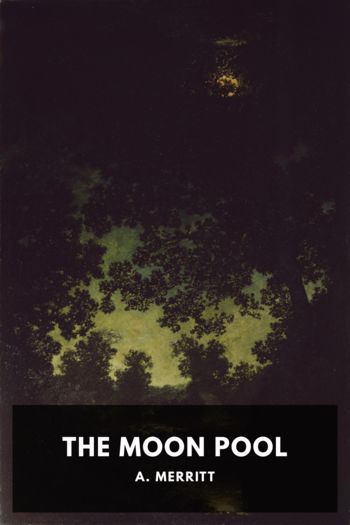Bombshell, Max Collins [important books to read .TXT] 📗

- Author: Max Collins
Book online «Bombshell, Max Collins [important books to read .TXT] 📗». Author Max Collins
After that, Mrs. Walt Disney refused to go to Disneyland.
Walt, however, hated to leave the place, and had the private apartment installed, to give him twenty-four-hour access to the nostalgic world he’d created, which he found so preferable to the real one. Often, during the day, he would amble along Main Street, chat with visitors, tousle the kids’ hair; but just as often crowds of autograph seekers would make that impractical. Instead, he would sit locked in his Main Street apartment and stare out the window wonderingly at the Americans from every state and every walk of life who were strolling down his boulevard of unbroken dreams.
And bittersweet tears of joy at this manifestation of his imagination, tinged with the sting of a lost youth and forever bygone America, would stream down his face and pearl in his mustache.
He looked out into the darkness, only a few security lights providing pools of occasional illumination on his Main Street, which represented to Walt the heart of a small Midwestern town from his childhood. He had designed the park so that, at first blush anyway, it provided a trip into the recent past—his past.
With the railroad defining the borders of the park, its main station was plopped down right at Disneyland’s main entrance. From here, visitors—starting at the small square with its town hall and fire station (over which his apartment nestled)— would wander down the archetypically American Main Street, whose storefronts bore such familiar names as “Elias Disney, Contractor” (Walt’s father) and “Main Street Gym, Christopher D. Miller, Proprietor” (his grandson).
Main Street provided an operating base for concessions, too, but (no matter what anyone thought) Disneyland wasn’t about money to Walt. He wanted to create a home away from home for all Americans, and hence had—with his cartoonist’s instincts— seen to it that everything on Main Street was built slightly smaller than life-size, to create a sense of friendliness, intimacy, a childlike world.
At the end of Main Street, an unlikely sight for small town Americans beckoned: Sleeping Beauty’s castle. Walt had dangled this “weenie” (as he put it) to keep people moving, to propel the park’s visitors onward, visual magnets pulling them into the next world of attractions.
Following this route clockwise, visitors moved from Main Street, finding themselves in Adventureland, then Frontierland, Fantasyland, and finally Tomorrowland, the logical conclusion to a journey that had begun in the nostalgic past. But—unlike a movie, where a viewer was drawn through a linear sequence— Disneyland could be enjoyed however the visitor pleased: a left turn, a right turn, changing the sequence of events and the “story” being told. This concept delighted Walt.
But for all of the lavish lengths that he’d gone to, to bring each of his “lands” to life, Walt himself remained most happy, most at home, with Main Street. Right now he sat on the over-stuffed sofa at the window, a black cigarette in one hand, glass of Scotch in the other, staring down at the dark street—empty of people, let alone horse-drawn streetcars.
His advisors had been after him to add a security force at the park, and he was considering doing so—perhaps he’d dress them like Keystone Kops—but he felt convinced that Disneyland was secure after dark. The Anaheim police did their drive-bys, didn’t they? In four years there had been no break-ins, no vandalism— that would have been un-American. That thought was just fading when the two figures in black moved down Main Street, into his God-like view.
Walt sat forward, eyes wide as Mickey Mouse. The window had been cracked open—no air-conditioning in his apartment, they didn’t have that back at the turn of the century, you know— and he could not only see the men, but hear them.
He could not, however, understand them: it was some Oriental language, Japanese, Korean … ?
No, Chinese…
Long-sleeved black t-shirts and tight trousers, black gloves, only their faces showing, the slender young men were Oriental themselves. One seemed to be in charge, and was pointing off toward Adventureland, then gestured forward, to Sleeping Beauty’s castle.
In their hands, their right hands, were weapons—automatics, affixed with extended snouts that Walt supposed were designed to silence their fire.
At that moment a distant but distinct mechanical grinding sound froze the two men, and caused Walt to sit up in alarm. Was that … one of the rides? On the midway?
The men in black conversed again in their foreign language— not loud, but not whispering—and then the leader used a word that was not Oriental, nor was it English, though this was one word in the flurry of percussive gibberish that Walt Disney recognized: Khrushchev. Then the two men split up, going in their separate directions, moving quickly.
Walt stood slowly (his arthritis allowed nothing else), and he covered his mustached mouth with a hand.
What could this mean? Why were two foreign intruders, with guns, stalking his park in the wee hours? Why would they mention the Russian chairman’s name, when Khrushchev was no longer scheduled to visit the park? Or did the two Oriental gunmen think Khrushchev was still coming to visit, tomorrow, as originally scheduled, and had sneaked in to be on hand to assassinate the premier when the sun came up … ?
He was not afraid—he was surprised, but also he was angry, a cold fury unlike the volcanic resentment he’d expressed at the canceling of the Khrushchev visit. His Magic Kingdom had been invaded—and one thing you didn’t want to be, in Walt Disney’s world, was the son of a witch out to get Snow White or Sleeping Beauty.
Walt mentally kicked himself for putting no telephone in the apartment—no phones at the turn of the century, either, and anyway he didn’t want





Comments (0)